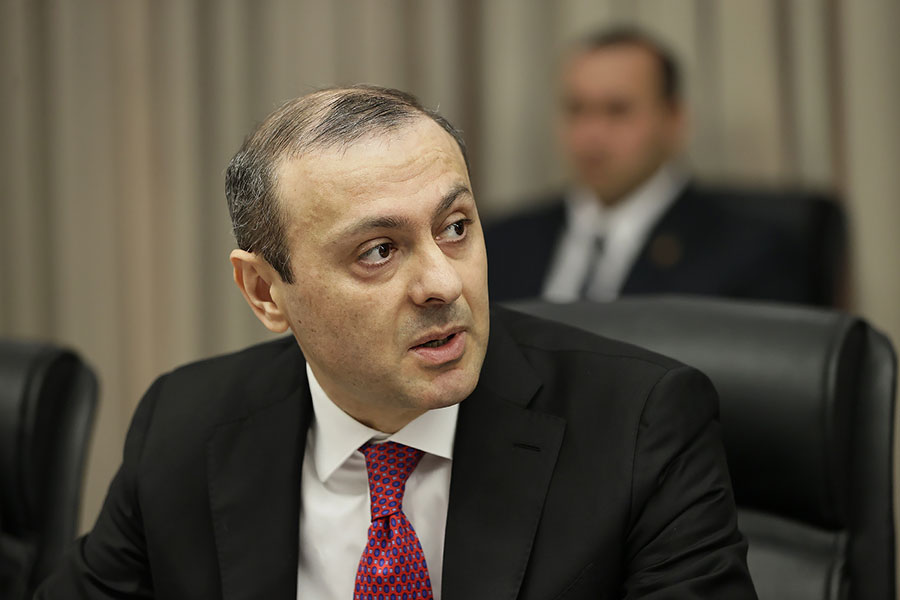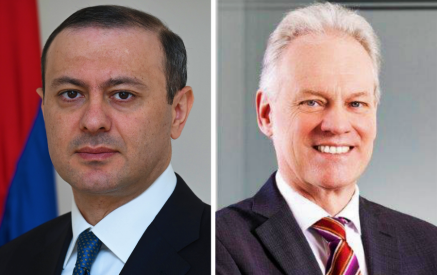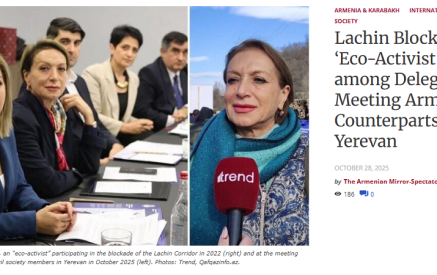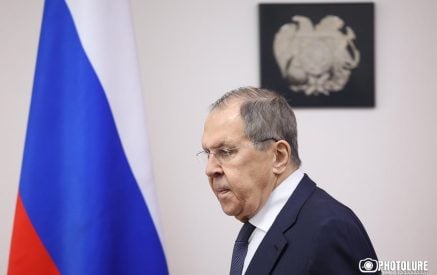Russia allowed Azerbaijan to start the 2020 war in Nagorno-Karabakh and regain full control over the region last September, a senior Armenian official charged on Wednesday, adding to mounting tensions between Moscow and Yerevan.
“Russia came, took Nagorno Karabakh away from the Armenians, returned it to Azerbaijan and then went back,” Armen Grigoryan, the secretary of Armenia’s Security Council, told reporters. “This is the whole reality. I insist that Russia took Nagorno Karabakh. Without Russia’s permission, there would have been no war.”
Russia was quick to reject the allegations, with Foreign Ministry spokeswoman Maria Zakharova accusing Grigoryan of “humiliating his own people” and questioning his sanity.
“Citizens of Armenia defended their territory, sacrificed their lives and considered that historically important,” Zakharova told a news briefing. “The ideology of Armenia as a state for many years was built precisely on these theses. They knew why they were going into battle, why they were sacrificing their well-being, dooming their wives and children to widowhood and orphanhood.”
Read also
Grigory Karasin, a senior member of Russia’s upper house of its parliament, called Grigoryan’s comments “absolutely not true.”
“One should look at the records and speeches of Armenian political figures, including senior leadership,” Karasin told the RIA Novosti news agency. “They contain the answers to these questions.”
Grigoryan appeared to echo Prime Minister Nikol Pashinyan’s May 22 claims that two member states of the Russian-led Collective Security Treaty Organization (CSTO) helped Azerbaijan prepare for the 2020 war. Pashinian is believed to have to referred to Russia and Belarus. The Russian Foreign Ministry challenged him to name those countries before recalling Russia’s ambassador to Armenia for consultations.
Although the ambassador, Sergei Kopyrkin, returned to Yerevan on June 10, the rift between the two longtime allies continues to deepen. In recent weeks, senior Russian officials have warned Pashinian’s administration against drifting further to the West. They have said, in particular, that it risks ruining Russian-Armenian military ties and losing tariff-free access to the Russian market vital for the Armenian economy.
Grigoryan defended what Pashinian and his political allies describe as a “diversification” of Armenia’s foreign and security policy. Ending its “total dependence” on Russia will “bring stability” to the region, he said.
Armenian opposition groups say the policy change is reckless given the absence of Western security guarantees or significant military aid to Yerevan. A group of former senior Armenian diplomats critical of Pashinian likewise asserted earlier this year that the pro-Western tilt has only aggravated national security challenges facing the country.
Grigoryan argued on Wednesday that Russia already accounts for less than 10 percent of the Armenia’s arms acquisitions because of its failure to honor Russian-Armenian defense contracts singed in 2021 and 2022. Ambassador Kopyrkin implied last December that Russian defense companies have not fulfilled most of their contractual obligations so far because of having to manufacture more weapons for the Russian military embroiled in the continuing war with Ukraine.
Grigoryan claimed that the Russians are also reluctant to help Armenia rebuild and modernize its armed forces.
“I don’t want to name names but must say that a high-ranking official from Armenia was once told that if Russia supplies Armenia with arms and ammunition Armenia will toughen its positions,” said the pro-Western official. “That’s also why they don’t deliver [the weapons.]”






















































